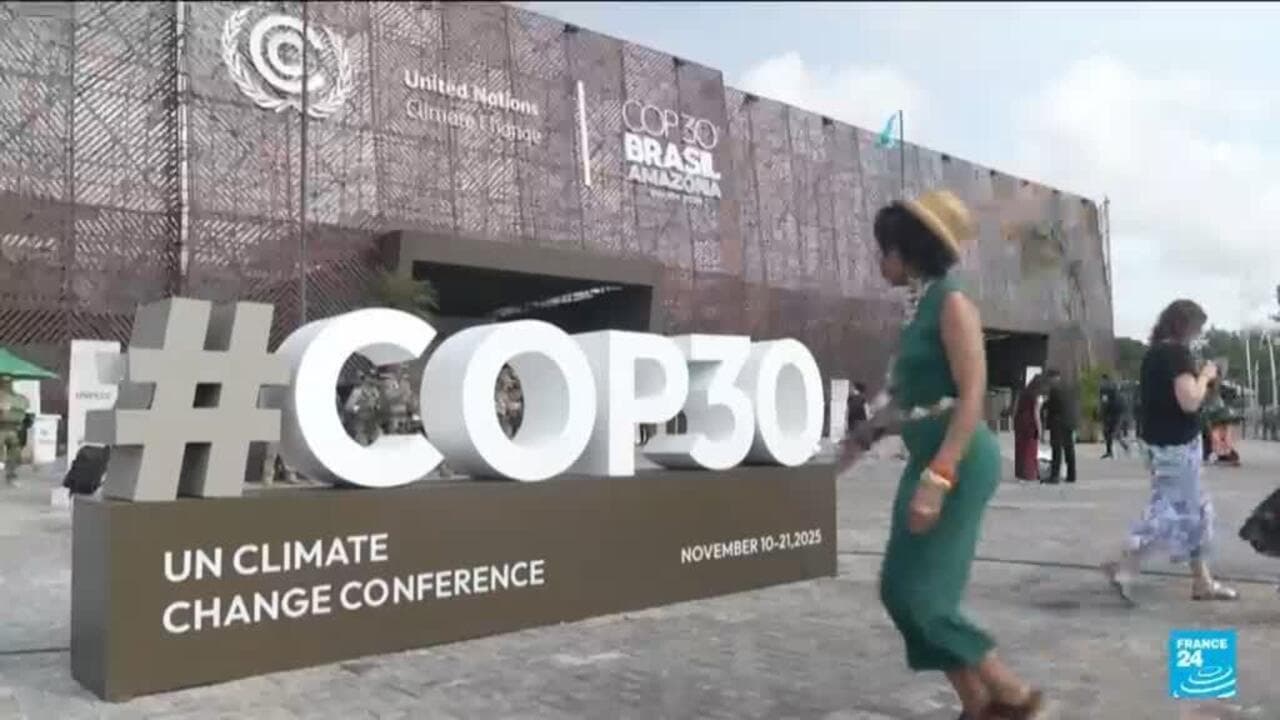We're loading the full news article for you. This includes the article content, images, author information, and related articles.
At the COP30 climate summit in Brazil, Kenya is a leading voice in a coalition pushing for a fossil fuel phase-out, but the negotiations have hit a deadlock, jeopardizing a global agreement and impacting Kenya's green energy ambitions.

BELÉM, BRAZIL – Intense disagreements over the future of fossil fuels have pushed the COP30 climate summit into overtime, with a new draft agreement omitting any mention of a plan to phase out oil, gas, and coal. This development has created a significant rift in the negotiations, pitting a coalition of over 80 nations, including Kenya, against major fossil fuel-producing countries. The outcome of this standoff has critical implications for global climate action and Kenya's strategic positioning as a leader in the green energy transition.
The talks, originally scheduled to conclude at 6:00 PM local time (12:00 AM, Saturday EAT) on Friday, November 21, 2025, are now in a precarious state. A draft text released early Friday morning by the Brazilian presidency dropped a proposed "roadmap" for transitioning away from fossil fuels, a key demand of many nations. This omission was met with strong opposition. The European Union's climate commissioner, Wopke Hoekstra, called the text a "non-starter" and warned of a "no deal scenario." Similarly, representatives from Colombia and Panama described the absence of fossil fuel language as "unacceptable."
Throughout the summit, Kenya has been a vocal proponent for a clear and time-bound global fossil fuel phase-out. Deputy President Kithure Kindiki, leading the Kenyan delegation, has emphasized the need for COP30 to resolve this "pending and urgent question." Kenya's firm stance is backed by its significant progress in renewable energy, with 93% of its electricity generated from sources like geothermal, wind, and solar power. The nation aims to achieve 100% green energy by 2030.
Kenya is part of a diverse and growing coalition that includes Germany, France, the UK, and Colombia, all advocating for a structured fossil fuel exit plan. This coalition argues that such a plan is essential to limit global warming to 1.5°C. However, this push faces strong resistance from oil and gas-producing states like Russia and Saudi Arabia.
The impasse at COP30 has direct consequences for East Africa, a region highly vulnerable to climate change impacts such as droughts and floods. A global failure to commit to reducing fossil fuel use will likely exacerbate these climate-related challenges, affecting agriculture, energy security, and economic stability across the region. East Africa's energy sector, which heavily relies on climate-sensitive hydropower, is particularly at risk.
The disagreement over fossil fuels is intertwined with long-standing disputes about climate finance. Developing nations, including those in the African Group of Negotiators (AGN), are demanding that developed countries provide more financial support for climate adaptation and the transition to clean energy. The AGN has highlighted that Africa should not be forced into a transition that undermines its development agenda without adequate financial and technological support. Richard Muyungi of Tanzania, the current chair of the AGN, has accused some wealthy nations of holding adaptation finance hostage to force African countries to support the fossil fuel roadmap.
Proposals to triple global adaptation finance by 2030 are on the table, but there is no consensus on the details of how these funds will be provided. This lack of financial commitment from developed nations is a major source of frustration for developing countries and a key obstacle to a comprehensive agreement at COP30.
As the negotiations continue into the weekend, the pressure is mounting. The absence of a clear commitment to phase out fossil fuels in the current draft text is a major setback for the coalition of ambitious nations. Observers note the significant presence of fossil fuel lobbyists at the summit, which may be influencing the negotiations. The final outcome of COP30 remains uncertain, but the current deadlock underscores the deep divisions that persist in the global effort to address climate change. For Kenya and its allies, the fight for a fossil fuel-free future continues, with the nation's own green ambitions hanging in the balance.
Keep the conversation in one place—threads here stay linked to the story and in the forums.
Sign in to start a discussion
Start a conversation about this story and keep it linked here.
Other hot threads
E-sports and Gaming Community in Kenya
Active 9 months ago
The Role of Technology in Modern Agriculture (AgriTech)
Active 9 months ago
Popular Recreational Activities Across Counties
Active 9 months ago
Investing in Youth Sports Development Programs
Active 9 months ago